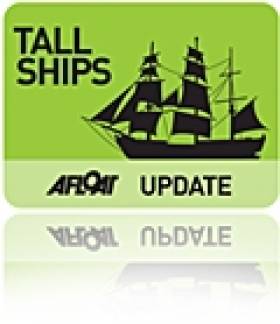Displaying items by tag: Scotsmans Bay,Ireland
Tallship For All Follows In Wake of MOD70 City Races
#TALL SHIP- The UK flagged tallship Lord Nelson, built specifically to enable people of all physical abilities to sail side-by-side as equals, last night anchored off Scotsman Bay. It was in these inshore waters recently where the impressive MOD70 'City' Races took place off Dun Laoghaire Harbour's East Pier, writes Jehan Ashmore.
The barque is run by the charity, Jubilee Sailing Trust (JST), and she followed in the wake of another albeit smaller tallship, Vilma, which too had anchored in Scotsmans Bay, though much closer to the shoreline. The Welsh schooner registered in Beaumaris, was in the flotilla with spectators to witness the MOD70s as the high-tech 'Formula 1' of boats belted across Dublin Bay.
JST also own another barque, the Tenacious, and both vessels are regular callers to Irish ports, where they provide sailing holidays for everyone to experience the thrill and adventure of life at sea and get involved in almost every activity on board. This can involve taking the helm, setting the sails and keeping watch, regardless of physical ability and previous sailing knowledge.
For details of voyages around the UK and Ireland click HERE, noting the vessels also cruise in far distant waters. For example Lord Nelson is scheduled to depart on a voyage from Kochi in India next year.
























































